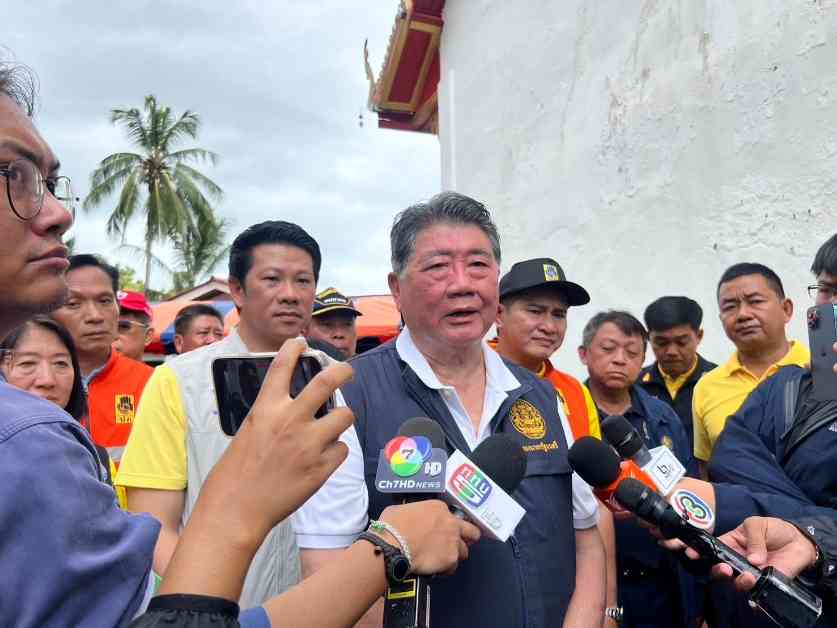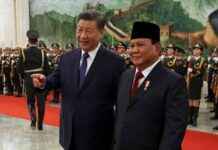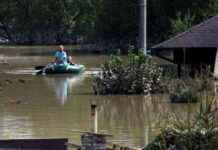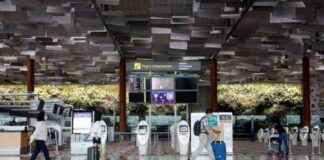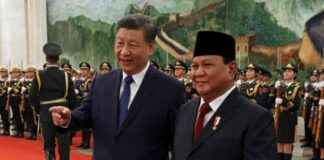Emergency Measures to Ensure Essential Products in Flooded Areas
In response to the recent flooding in various regions of Thailand, the government has implemented emergency measures to ensure the availability of essential products in affected areas. On August 25, 2567, Mr. Poomittham traveled to Nakhon Phanom Airport in Nakhon Phanom province to carry out inspection and relief operations in flood-affected areas, specifically in Tha Wangpha district, Nakhon Phanom province. The first stop was at Wat Ampawan in Sri Phum sub-district, Tha Wangpha district, where he assessed the water situation using a Mobile War Room vehicle and distributed essential supplies to 728 affected individuals.
During the assessment, Ms. Roi Boonrasmi, Director of the National Water Resources Institute, provided updates on the daily water levels in the reservoirs managed by the Department of Irrigation and the National Water Information Center, emphasizing the need for close monitoring in northern regions. The changing weather patterns have led to heavy rainfall in the north, while similar conditions are occurring in the southern regions, underscoring the importance of coordinated information sharing among all relevant agencies.
Mr. Poomittham emphasized the significance of data integration for all agencies and urged vigilance due to ongoing rainfall. He also called for the deployment of Mobile War Room vehicles to multiple areas and emphasized the importance of connecting data to the central command center. While the situation in northern provinces like Sukhothai may worsen as water flows into the region, he stressed the use of drones to monitor water movements.
Promoting Cost-Efficient Commercial Practices
In light of the flooding and its impact on public welfare, the government is taking proactive steps to promote cost-efficient commercial practices and minimize disruptions to essential product supplies. Mr. Poomittham directed Mr. Wuttikrai Liwiraphan, the Permanent Secretary of the Ministry of Commerce, to prepare assistance measures for affected farmers, residents, and businesses in the northern provinces of Phrae, Phayao, and Chiang Rai.
The Ministry of Commerce, in collaboration with provincial trade departments, engaged with wholesale and retail businesses, local shops, convenience stores, and construction material suppliers to ensure close monitoring and prevent price gouging. Reports indicate that these entities are adequately stocked, with smooth transportation and readiness to offer discounted prices on essential goods to assist the public.
To further regulate pricing and prevent unfair practices, provincial trade departments have been tasked with monitoring price displays and enforcing regulations. Violations could result in fines up to 10,000 baht for failure to display prices and up to 7 years in prison or a fine of up to 140,000 baht for price gouging. Citizens are encouraged to report any violations through the Ministry of Commerce hotline or local trade offices.
Ensuring Long-Term Sustainability and Preparedness
While addressing the immediate challenges posed by the floods, the government is also focused on long-term sustainability and preparedness to mitigate future disasters. Mr. Poomittham highlighted the need to prioritize water management as a national agenda, echoing sentiments shared by former Prime Minister Yingluck Shinawatra in 2554.
The current budget allocation for flood management exceeds previous estimates, indicating a strategic approach from the government. Investments in water management and disaster preparedness are deemed essential for the country’s resilience against climate change impacts and extreme weather events.
As the floodwaters recede, the Ministry of Commerce will continue to support affected communities by providing essential goods at reduced prices. Collaboration between the Ministry of Commerce and provincial trade departments will ensure the availability of necessary products for livelihoods, cleaning supplies, and home repairs at discounted rates.
In conclusion, the government’s proactive measures aim to safeguard public welfare, promote sustainable commercial practices, and enhance disaster preparedness. By implementing cost-efficient strategies and maintaining transparent communication channels, Thailand is better equipped to address current challenges and build resilience for the future.
